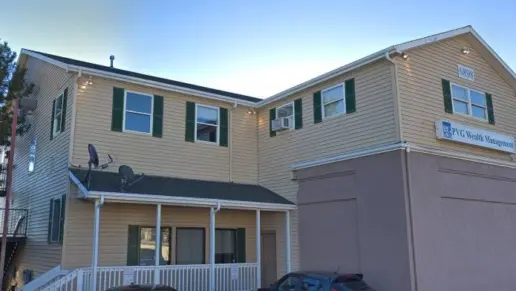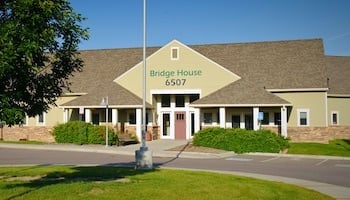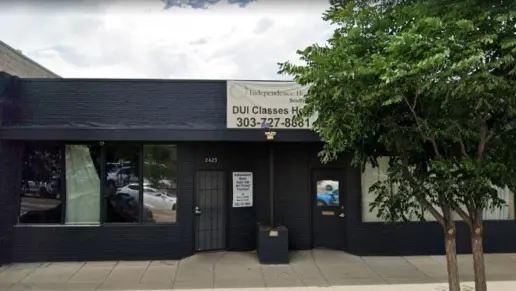They try to push you into treatment even if you don't need it, all for the purpose of charging you more. I think there are better places who care more about the people and not the money.
About the Facility
Action Counseling offers outpatient treatment for individuals with alcohol and/or substance addiction. The program includes dual-diagnosis treatment, EMDR Therapy, couples treatment and more. Action Substance Abuse Recovery - East Hampden Avenue is located at Aurora, Colorado.
Action Counseling is compromised to provide a range of psychological services at an affordable cost. They believe that every patient has the inner strength and wisdom to achieve the lifestyle they want. Through their work they will help patients to tap into that wisdom and develop it. Through their work they will help patients to tap into that wisdom and develop it.
Action Counseling offers services from 8:30 am to 5:00 pm, Monday to Saturday. The counselors at the facility specialize in different treatment methods and areas including: couples treatment, family issues, anxiety, depression, trauma and more. They offer counseling and therapy to people who would like to feel better and make improvements in their lives.
 Treatment
Treatment
 Alcoholism
Alcoholism
Alcoholism is defined as a physical dependence on alcohol. In this state, the body experiences withdrawal symptoms in the absence of alcohol. Over time, a person with alcohol use disorder also must drink greater amounts of alcohol to achieve the same effects. To overcome alcohol use disorder, alcohol rehab in Colorado is usually necessary, a process which includes supervised medical detox. This is followed by intensive rehab, then a maintenance program that may include 12-step support.
 Drug Addiction
Drug Addiction
Professional services are often necessary to recover from addiction. Drug rehab in Colorado provides the expert services needed to address the complex issues of addiction and help individuals start their recovery journey.
 Dual Diagnosis
Dual Diagnosis
Colorado offers dual-diagnosis addiction treatment programs that encompass various levels of care to meet your individual needs, including medical detox, outpatient, inpatient, and partial hospitalization programs for individuals with co-occurring mental health and substance use disorders. These dual-diagnosis rehab programs incorporate evidence-based therapies such as cognitive-behavioral therapy (CBT) or dialectical behavior therapy (DBT) to successfully address substance use disorders and co-occurring diagnoses.
 Mental Health and Substance Abuse
Mental Health and Substance Abuse
Mental health and substance abuse treatment in Colorado is usually offered in dual-diagnosis rehabs. These programs provide comprehensive care tailored to your specific needs, which may include detox, inpatient residential treatment, intensive outpatient, or partial hospitalization. Addiction and medical experts at these dual-diagnosis facilities usually provide a comprehensive mental health assessment, individual and group counseling, psychoeducation, and skill development groups. By prioritizing a holistic approach to your mental and emotional health, you’ll also gain the confidence and tools to maintain your sobriety.
 Insurance and Financial
Insurance and Financial
Private insurance
Self-pay options
Sliding scale payment assistance
Per session
 Programs
Programs
 Adolescence program
Adolescence program
 Adult program
Adult program
 LGBTQ program
LGBTQ program
 Program for men
Program for men
 Program for women
Program for women
 Young adult program
Young adult program
 Levels of Care
Levels of Care
 Outpatient
Outpatient
Outpatient rehabs offer a wide variety of services and levels of care to align with clients’ unique and evolving needs. Outpatient care is best suited for clients who are stable and for those who wish to remain at home while receiving treatment. Clients typically receive addiction counseling and recovery-focused life skills training, including participating in evening, night, and weekend sessions to accommodate clients’ schedules. Clients at an increased relapse risk may receive more frequent and intensive treatment.
 Aftercare Support
Aftercare Support
Completing a drug or alcohol rehab program shouldn't spell the end of substance abuse treatment. Aftercare involves making a sustainable plan for recovery, including ongoing support. This can include sober living arrangements like halfway houses, career counseling, and setting a patient up with community programs like Alcoholics Anonymous (AA) or Narcotics Anonymous (NA).
 Clinical Services
Clinical Services
Cognitive Behavioral Therapy
Cognitive Behavioral Therapy (CBT) is a therapy modality that focuses on the relationship between one's thoughts, feelings, and behaviors. It is used to establish and allow for healthy responses to thoughts and feelings (instead of unhealthy responses, like using drugs or alcohol). CBT has been proven effective for recovering addicts of all kinds, and is used to strengthen a patient's own self-awareness and ability to self-regulate. CBT allows individuals to monitor their own emotional state, become more adept at communicating with others, and manage stress without needing to engage in substance abuse.
Couples Therapy
Whether a marriage or other committed relationship, an intimate partnership is one of the most important aspects of a person's life. Drug and alcohol addiction affects both members of a couple in deep and meaningful ways, as does rehab and recovery. Couples therapy and other couples-focused treatment programs are significant parts of exploring triggers of addiction, as well as learning how to build healthy patterns to support ongoing sobriety.
Eye Movement Desensitization and Reprocessing
EMDR is a therapeutic modality originally developed to help process trauma. In an EMDR session, a patient is prompted to undergo eye movements that mimic those of REM sleep. This is accomplished by watching a therapist's finger move back and forth across, or following a bar of light. The goal is repetitive sets of eye movements that help the brain reprocess memory, which can significantly reduce the intensity of remembered traumatic incidents. Associated memories can heal simultaneously, leaving patients significantly calmer, more stable, and more emotionally relaxed.
Family Therapy
Research clearly demonstrates that recovery is far more successful and sustainable when loved ones like family members participate in rehab and substance abuse treatment. Genetic factors may be at play when it comes to drug and alcohol addiction, as well as mental health issues. Family dynamics often play a critical role in addiction triggers, and if properly educated, family members can be a strong source of support when it comes to rehabilitation.
Group Therapy
Group therapy is any therapeutic work that happens in a group (not one-on-one). There are a number of different group therapy modalities, including support groups, experiential therapy, psycho-education, and more. Group therapy involves treatment as well as processing interaction between group members.
Individual Therapy
In individual therapy, a patient meets one-on-one with a trained psychologist or counselor. Therapy is a pivotal part of effective substance abuse treatment, as it often covers root causes of addiction, including challenges faced by the patient in their social, family, and work/school life.
Rational Behavior Therapy
Rational Behavior Therapy (RBT) is a form of cognitive behavioral therapy meant to be short-term and comprehensive. It was intended to help clients become more self-sufficent and move forward without the need for expensive, ongoing therapy. It includes an emotional self-help method called “rational self-counseling,” the purpose of which is to give clients all the skills needed to handle future emotional issues by themselves, or with significantly less professional help.
Trauma Therapy
Trauma therapy addresses traumatic incidents from a client's past that are likely affecting their present-day experience. Trauma is often one of the primary triggers and potential causes of addiction, and can stem from child sexual abuse, domestic violence, having a parent with a mental illness, losing one or both parents at a young age, teenage or adult sexual assault, or any number of other factors. The purpose of trauma therapy is to allow a patient to process trauma and move through and past it, with the help of trained and compassionate mental health professionals.
 Settings and Amenities
Settings and Amenities
-
Residential setting
-
Private setting
 Contact
Contact
14901 East Hampden Avenue
Suite 270
Aurora CO, 80014


